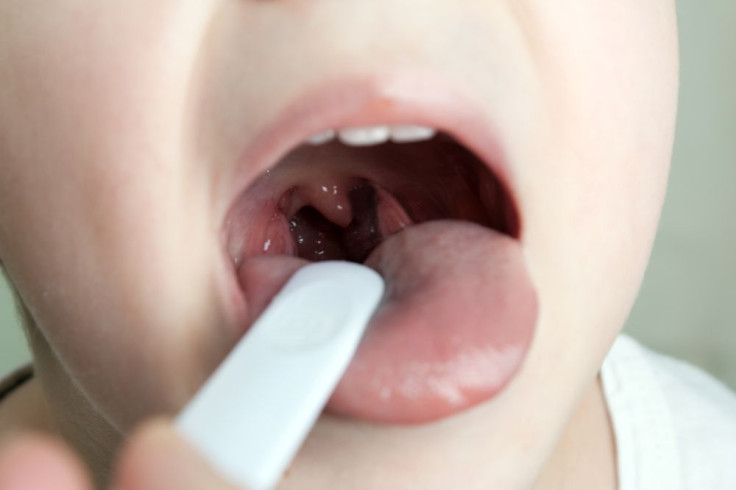Children To Gain Weight Following Tonsil Surgery: Consider Healthier Options Rather Than Ice Cream

For children who have their tonsils removed, the only silver lining to look forward to is the promise of all the ice cream they can eat, but parents may want to think about a healthier option. A recent study conducted at the Stanford University School of Medicine has revealed children who underwent an adenotonsillectomy at a young age were more likely to gain weight after the surgery. However, this sudden weight gain was not correlated with obesity rates.
According to the American Academy of Otolaryngology – Head and Neck Surgery, tonsillectomy, the removal of tonsils, and adenotonsillectomy, the removal of adenoids, are generally performed in unison depending on the patient’s medical history. The number of tonsillectomies performed in the United States has seen a dramatic reduction in the past couple of years, although otolaryngologists still recommend the procedure for children affected by certain upper airway conditions. While a recurrent infection accounted for around 90 percent of the surgeries performed three decades ago, only 20 percent of tonsillectomies carried out today are for an infection compared to 80 percent that are performed to correct obstructive sleep problems.
Authors of the study, Dr. Josephine A. Czechowicz and Dr. Kay W. Chang, reviewed the medical records of 815 patients under the age of 18 who underwent an adenotonsillectomy between 2007 and 2012. The research team estimated 500,000 children in the U.S. who have their tonsils removed in a given year. The weight percentiles of children included in this study increased an average of 6.3 percentile points in the 18 months following surgery. Children under the age of 4 in the first to 60th percentile for weight stood the highest risk of gaining weight after their operation. On the other hand, children over the age of 8, and children above the 80th percentile, gained the least amount of weight after having their tonsils removed.
"Despite the finding that many children gain weight and have higher BMIs after tonsillectomy, in our study, the proportion of children who were obese (BMI >95th percentile) before surgery (14.5 percent) remained statistically unchanged after surgery (16.3 percent),” Czechowicz and Chang said in a statement. “On the basis of this work, adenotonsillectomy does not correlate with increased rates of childhood obesity."
Although the authors of this study were unable to offer up reasoning behind a child’s weight gain following a tonsillectomy or adenotonsillectomy, a similar study carried out by researchers from Saint Louis University did suggest possible explanations. One theory is that children who were more physically active prior to surgery tend to be less energetic after having their tonsils removed. Another reason could be that patients lose their appetite immediately following tonsil removal due to the soreness in their airways but gain it back 10-fold after the pain reduces.
Source: Czechowicz J, Chang K. Weight Gain in Children Occurs After Tonsil Removal, Not Linked to Obesity. JAMA. 2014.



























